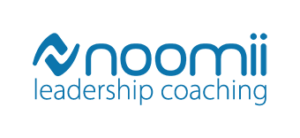In today’s business world, leaders face new and complex challenges at an unprecedented pace. Navigating this environment demands more than traditional skills.
Executive coaching has emerged as a vital tool for those striving to achieve lasting impact in 2025 and beyond. This comprehensive guide will help you unlock the strategies and frameworks that drive measurable leadership success.
Whether you are an executive, HR professional, or organizational leader, you’ll discover how to harness executive coaching for peak performance. Explore the essentials, proven outcomes, step-by-step processes, and future trends that will shape your leadership journey.
Are you ready to elevate your skills and meet tomorrow’s demands? Let’s dive in and transform your leadership potential.
Understanding Executive Coaching: Foundations and Impact
In today’s business landscape, executive coaching stands as a pivotal tool for developing leaders who can thrive amid constant change. Organizations are increasingly turning to executive coaching to unlock leadership potential, drive strategic growth, and foster resilience in complex environments.
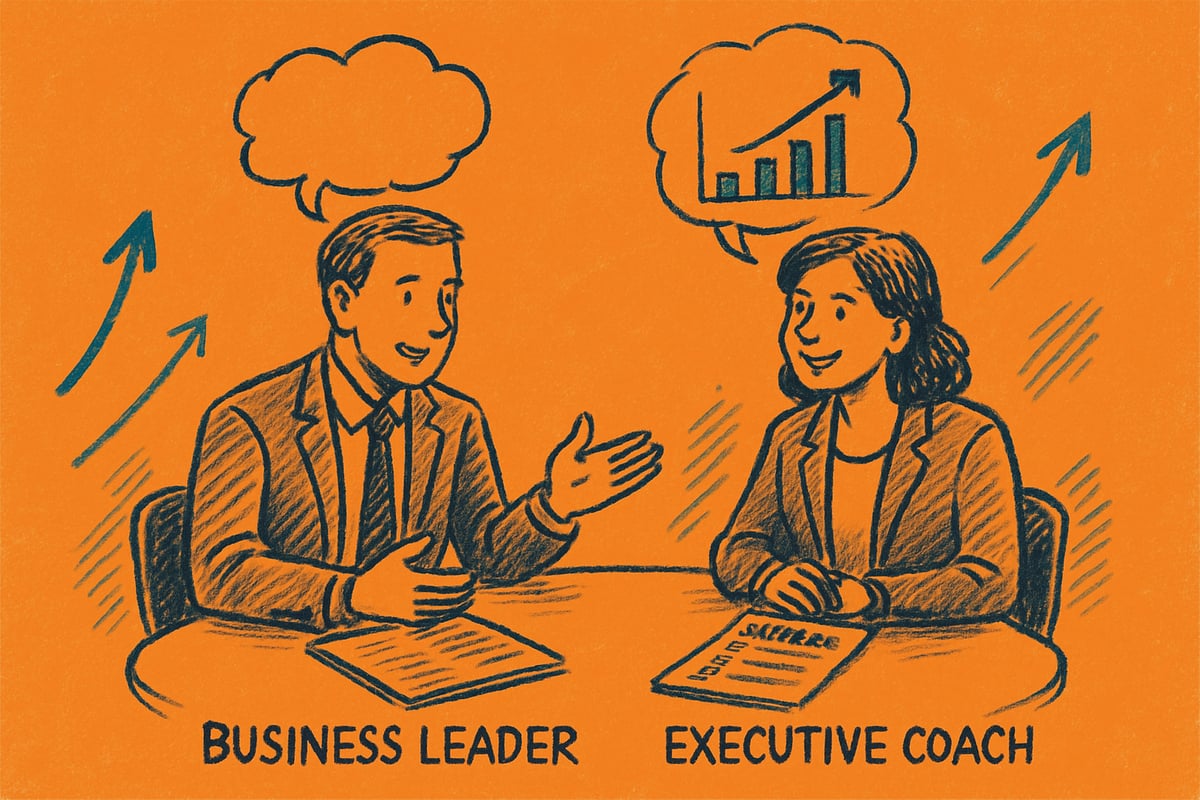
Defining Executive Coaching and Its Core Principles
Executive coaching, within a corporate context, is a structured, confidential partnership focused on helping leaders achieve specific business and personal objectives. Unlike mentoring, which is more advice-driven, or consulting, which often provides solutions, executive coaching centers on empowering leaders to find their own answers through guided reflection and accountability.
Key principles of executive coaching include:
- Confidentiality: Ensuring a safe space for honest dialogue.
- Goal-orientation: Targeting measurable outcomes linked to organizational priorities.
- Accountability: Encouraging responsibility for progress and results.
- Partnership: Building a collaborative relationship between coach and leader.
Personalized development is at the core of executive coaching. Coaches use frameworks informed by research and neuroscience, such as those from the Center for Creative Leadership (CCL), to tailor programs to each leader’s unique needs and context.
The Measurable Benefits of Executive Coaching
Organizations increasingly recognize the tangible impact of executive coaching. Leaders who participate in coaching programs report significant gains in their effectiveness, with studies showing that 98 percent notice improvements in leadership capability and 95 percent see better job performance.
Other measurable benefits include:
- Enhanced resilience under pressure (92 percent of leaders report improvement).
- Smoother transitions into new roles.
- Increased emotional intelligence and self-awareness.
- Stronger relationships with stakeholders and teams.
For those interested in the latest data, Executive Coaching Statistics 2025 provides comprehensive insights into coaching’s ROI and business outcomes.
Executive Coaching vs. Traditional Leadership Development
How does executive coaching differ from traditional leadership development programs? While leadership training often delivers knowledge in group settings, executive coaching offers a personalized, one-on-one approach that accelerates real behavior change.
| Aspect | Executive Coaching | Traditional Training |
|---|---|---|
| Approach | Individualized, confidential | Group-based, standardized |
| Focus | Personal goals and business outcomes | General leadership skills |
| Behavior Change | Accelerated and sustained | Variable, often less lasting |
| Accountability | Ongoing, direct | Limited to course duration |
Organizations leveraging executive coaching report more sustainable leadership transformation, with case studies highlighting faster adaptation and lasting habit formation.
When and Why Organizations Invest in Executive Coaching
Companies invest in executive coaching for various reasons, often triggered by:
- Leadership transitions or promotions.
- Succession planning and talent development.
- Organizational change or restructuring.
- Identified performance gaps.
Investment in executive coaching is typically aligned with strategic objectives, ensuring coaching outcomes support broader business goals. Common success metrics include improved retention, enhanced team performance, and tangible business results.
Return on investment is a key consideration, with many organizations tracking progress using pre- and post-coaching assessments, 360-degree feedback, and business KPIs. For more on accountability frameworks, resources such as Accountability Now offer practical insights.
The Executive Coaching Process: Step-by-Step Guide for 2025
Navigating the executive coaching process requires a structured, strategic approach that aligns with organizational goals and leadership challenges. Here is a step-by-step guide to maximizing the impact of executive coaching in 2025.
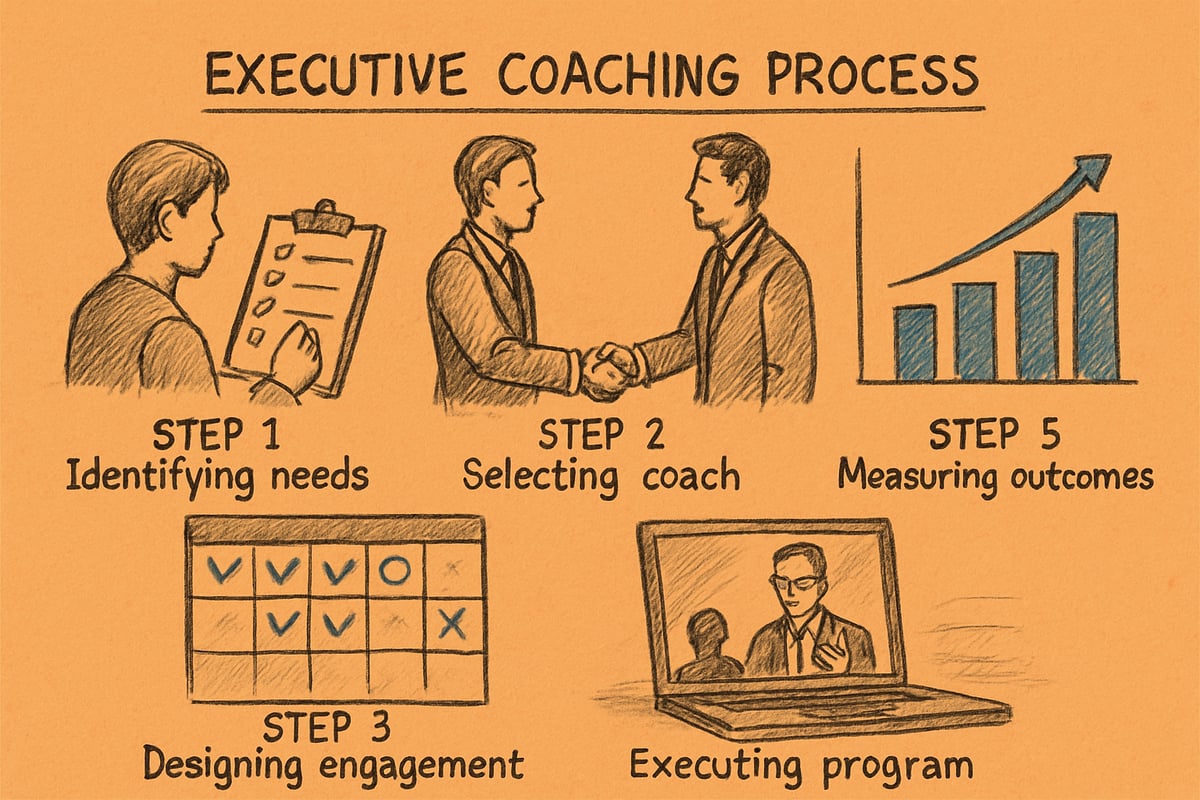
Step 1: Identifying Coaching Needs and Setting Objectives
The foundation of effective executive coaching begins with a clear understanding of both organizational and individual leadership challenges. Leaders and HR teams start by assessing current pain points, such as role transitions or gaps in team effectiveness.
A common practice is to use 360-degree feedback and leadership assessments. This data-driven approach uncovers blind spots and development areas. Objectives for executive coaching should tie directly to business KPIs, whether the focus is on communication, resilience, or strategic thinking.
For instance, a leader facing a new role may set goals around stakeholder management and rapid adaptation. By aligning coaching outcomes with measurable business priorities, organizations create a roadmap that empowers leaders to thrive. The executive coaching process is most effective when objectives are personalized and outcome-oriented.
Step 2: Selecting the Right Executive Coach
Choosing the right executive coach is critical to success. The ideal coach combines industry experience, a robust methodology, and a proven track record in leadership development. It is important to consider not just qualifications, but also the “fit” — trust and rapport are essential for open dialogue.
Key criteria for selection include:
- Relevant industry or functional expertise
- Coaching certifications and evidence-based methodology
- Cultural awareness for global organizations
- References and success stories
Many organizations use platforms like Find an Executive Coach to access a curated network of vetted professionals. For multinational teams, cultural alignment and language skills are also vital. Ultimately, the right executive coaching relationship is built on mutual respect and shared commitment to growth.
Step 3: Designing a Personalized Coaching Engagement
Once a coach is selected, the next step is to structure the engagement. Executive coaching packages typically range from four to twelve months, offering flexibility based on leadership goals and availability.
Common focus areas include:
- Change leadership
- Emotional intelligence
- Global influence
- Team dynamics
A table can help compare package options:
| Package Length | Focus Areas | Format |
|---|---|---|
| 4 months | Rapid transition, resilience | Virtual/Hybrid |
| 6 months | Communication, influence | Onsite/Virtual |
| 9-12 months | Strategic change, global leadership | Blended |
Integration of neuroscience and behavior-change frameworks ensures coaching is evidence-based and impactful. Personalization is key, as each executive coaching journey should reflect the leader’s unique context and organizational objectives.
Step 4: Executing the Coaching Program
Execution must fit the demanding schedules of senior leaders. Sessions are often scheduled flexibly, with options for confidential in-person, virtual, or hybrid formats. Digital platforms streamline scheduling, document sharing, and progress tracking.
Essential tools for seamless engagement:
- Secure video conferencing apps
- Real-time feedback dashboards
- Confidential online journals
Regular check-ins and actionable feedback keep momentum high. The executive coaching process leverages technology to provide continuous support, making it easier for leaders to apply insights in real time. Confidentiality and accessibility are always prioritized throughout the engagement.
Step 5: Measuring Outcomes and Ensuring ROI
To ensure executive coaching delivers value, organizations must define clear success metrics. Typical outcomes include improved leadership effectiveness, increased resilience, and measurable business impact.
Measurement strategies:
- Pre- and post-coaching assessments
- Stakeholder feedback surveys
- Retention and performance data analysis
For example, many organizations report that coached leaders transition into new roles faster and drive better team performance. According to CCL, 96% of clients see greater business success post-coaching. Leveraging resources like https://accountabilitynow.net/ can further enhance measurement strategies and program effectiveness.
By systematically evaluating outcomes, organizations build a strong business case for executive coaching as a catalyst for leadership excellence.
Key Strategies for Leadership Success Through Coaching
In today’s volatile business landscape, leaders must adapt rapidly and drive results with confidence. Executive coaching supplies the targeted strategies necessary for this transformation. By focusing on key areas such as self-awareness, communication, team leadership, resilience, and change management, executive coaching empowers leaders to unlock their full potential and elevate organizational performance.
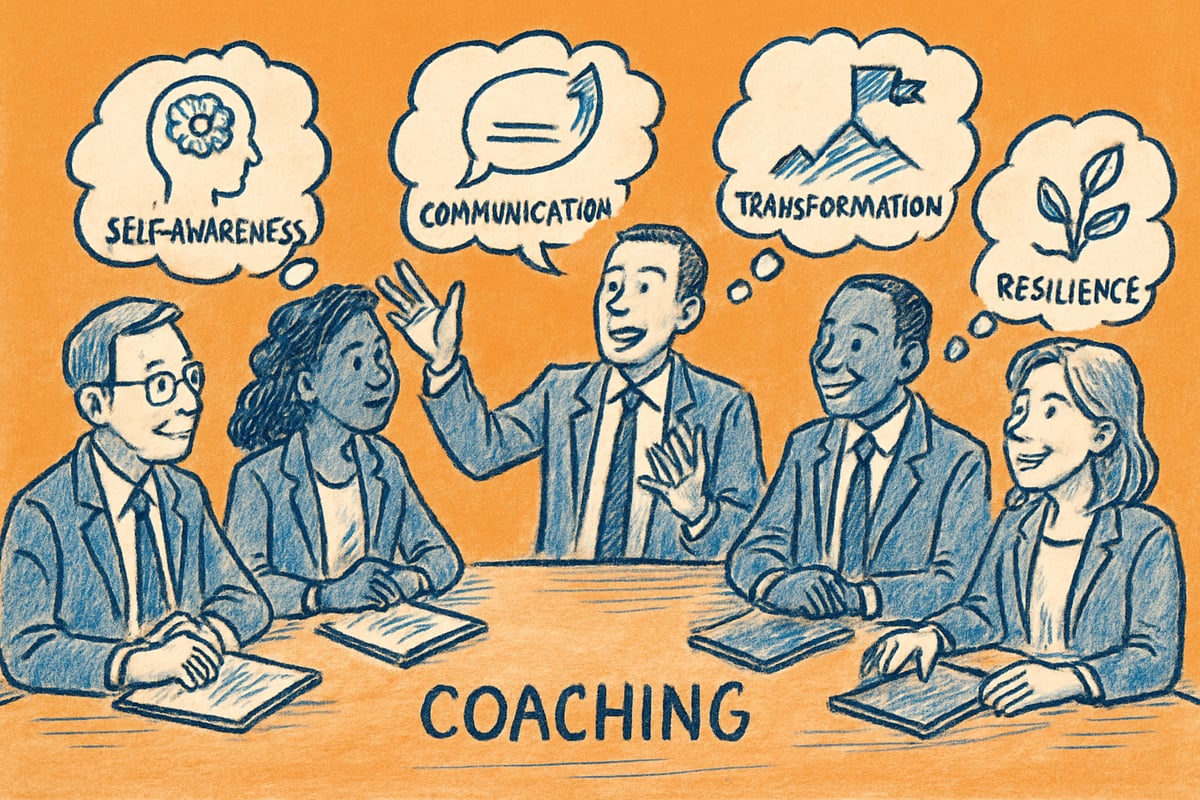
Cultivating Self-Awareness and Emotional Intelligence
Self-awareness is the foundation of effective leadership. Executive coaching helps leaders identify their strengths, blind spots, and behavioral patterns. Coaches use tools like journaling prompts, 360-degree feedback, and guided reflection to encourage honest self-assessment.
Leaders who develop emotional intelligence through executive coaching become better at managing their own emotions and understanding others. This leads to stronger relationships, improved conflict resolution, and more thoughtful decision-making. For example, executives often report that coaching directly increases their ability to connect with stakeholders and inspire trust within their teams.
Key techniques include:
- Regular self-reflection exercises
- Gathering feedback from peers and direct reports
- Practicing mindful awareness in high-pressure situations
By prioritizing self-awareness, leaders set the stage for sustainable personal and professional growth.
Enhancing Communication, Presence, and Influence
Clear communication and executive presence are critical for inspiring teams and driving change. Executive coaching provides leaders with practical strategies to refine their messaging, listen actively, and project confidence in every interaction.
Coaches often use storytelling frameworks, role-playing, and feedback loops to help leaders develop persuasive communication skills. Through executive coaching, leaders learn to tailor their approach to different audiences, ensuring their vision is understood and embraced.
For deeper insights and ongoing tips, the Coach Blog: Leadership Insights offers practical articles on communication strategies, influence, and leadership trends. As a result, leaders who invest in executive coaching frequently report greater impact when leading organizational change or influencing key stakeholders.
Leading High-Performing Teams and Fostering Collaboration
High-performing teams do not happen by accident. Executive coaching equips leaders with the skills to build trust, set clear expectations, and promote accountability within their teams.
Team coaching methods encourage collaboration, open dialogue, and effective conflict resolution. Coaches facilitate sessions that uncover team dynamics and help leaders leverage diverse strengths. This approach results in measurable improvements in engagement, retention, and overall team culture.
Strategies include:
- Facilitated team workshops
- Setting shared goals and roles
- Implementing regular check-ins for feedback
Organizations that prioritize executive coaching for team development often see significant gains in productivity and innovation. For additional resources on team accountability, visit accountabilitynow.net.
Building Resilience and Managing Stress
Resilience is a hallmark of successful leaders, especially during times of uncertainty. Executive coaching supports leaders in developing practical stress management techniques and routines for sustainable performance.
Coaches introduce energy optimization strategies, such as time-blocking, mindfulness practices, and prioritization methods. By integrating these tools, leaders can maintain focus and adaptability in the face of setbacks or change.
Ninety-two percent of coached leaders report greater resilience, highlighting the powerful role executive coaching plays in preparing executives to handle pressure and recover quickly from challenges.
Navigating Organizational Change and Driving Transformation
Change is constant in modern organizations. Executive coaching guides leaders through transitions, mergers, restructures, and digital transformations by providing frameworks for effective change management.
Coaches help leaders align stakeholders, communicate transparently, and model adaptability. This personalized support accelerates role transitions and minimizes resistance, resulting in smoother transformations and stronger business outcomes.
Leaders who leverage executive coaching during periods of change consistently report faster adaptation, greater engagement, and more sustainable results.
Emerging Trends and Innovations in Executive Coaching for 2025
The landscape of executive coaching is evolving rapidly as organizations prepare for 2025. Leaders and HR teams are embracing new technologies, scientific insights, and inclusive practices to maximize impact. Let us explore the key trends shaping the future of executive coaching.
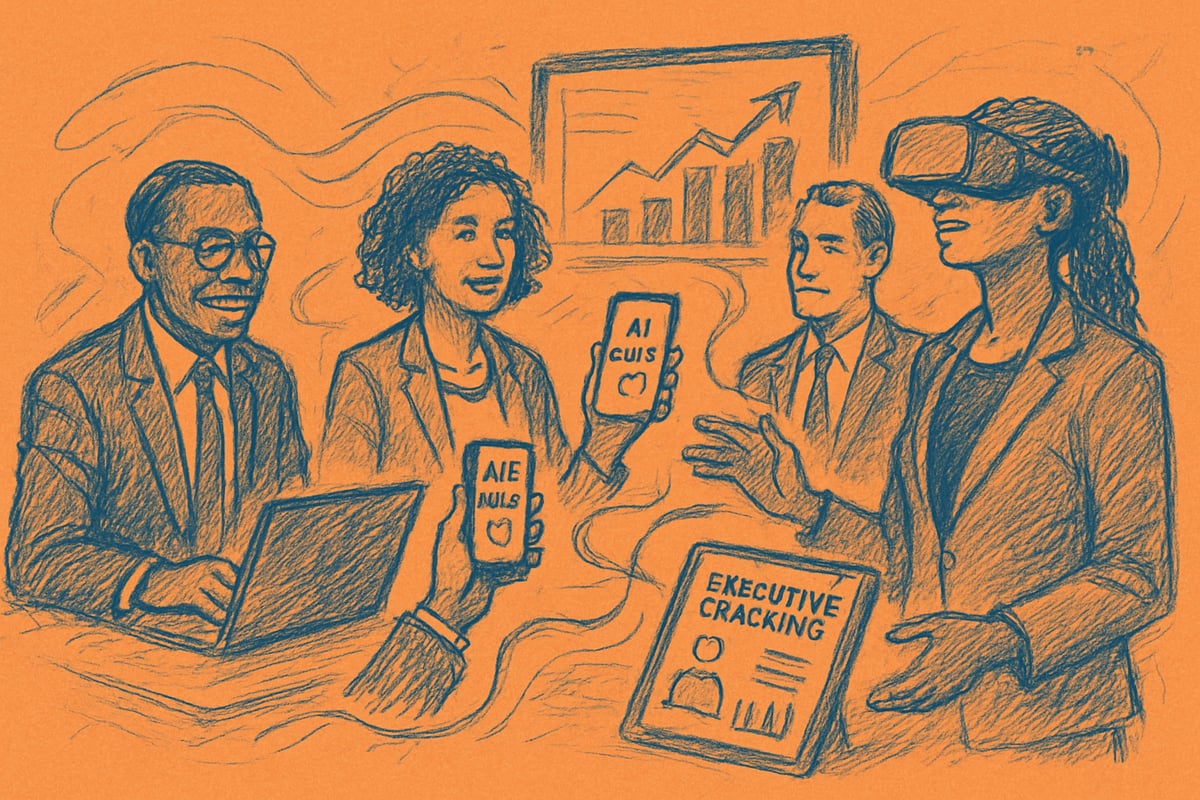
Integration of Technology and Digital Coaching Platforms
Technology is revolutionizing executive coaching by making it more accessible and data-driven. Virtual coaching sessions, AI-powered assessments, and analytics platforms are now standard tools. Digital platforms enable flexible scheduling, confidential communication, and real-time feedback.
According to the ICF Global Coaching Study 2023, digital solutions are expanding the reach of executive coaching, allowing leaders to engage with coaches worldwide. This trend supports scalable, personalized development and enables organizations to monitor progress efficiently.
Neuroscience and Behavioral Science in Coaching
Recent breakthroughs in neuroscience are transforming executive coaching into a more evidence-based practice. Coaches now use research on habit formation, cognitive development, and emotional regulation to help leaders achieve lasting change.
Techniques rooted in behavioral science, such as mindfulness and visualization, drive measurable improvements. By integrating neuroscience-backed frameworks, executive coaching accelerates learning, deepens self-awareness, and supports sustainable growth. Organizations that leverage these models report faster results and higher engagement.
Diversity, Equity, and Inclusion (DEI) in Executive Coaching
Diversity, equity, and inclusion have become central pillars of executive coaching. Coaches work closely with leaders to build cultural intelligence, address unconscious bias, and foster inclusive environments.
Global organizations value executive coaching for its ability to improve cross-cultural communication and support equitable leadership. As workplaces become more diverse, coaching that incorporates DEI principles helps leaders create belonging and drive innovation.
Scalability and Accessibility of Coaching
Executive coaching is no longer reserved for top executives. Companies are scaling coaching efforts to reach mid-level managers and emerging leaders. Group and team coaching formats are gaining popularity, making development more affordable and collaborative.
Flexible, on-demand packages allow busy professionals to access coaching when they need it most. New platforms, such as those highlighted by Business Coaching Specialists, make it easier to match leaders with the right coach for their needs.
Measuring and Demonstrating ROI
Organizations demand evidence that executive coaching delivers business value. Advanced analytics now track engagement, retention, and performance metrics. According to Executive Coaching Industry Statistics 2024, 95% of coached leaders report improved job performance, and companies see measurable returns on investment.
Leaders use pre- and post-coaching assessments, stakeholder feedback, and business KPIs to evaluate success. Resources such as those from Accountability Now provide insights for organizations seeking to link coaching outcomes to strategic objectives.
Case Studies and Real-World Success Stories
Executive coaching is not just a theoretical tool, it is a catalyst for measurable, lasting change in organizations and individuals. The following case studies and success stories reveal how executive coaching drives transformation at every level of leadership.
Transforming Leadership at Fortune 1000 Companies
Novo Nordisk’s large-scale executive coaching initiative demonstrates how targeted leadership support can shift an entire performance culture. Facing rapid growth and global expansion, the company invested in coaching for senior leaders during a critical period of transformation.
Through a neuroscience-informed coaching framework, executives quickly adapted to new roles and responsibilities. The results were clear: role transitions became quicker, team leadership improved, and business outcomes were measurable. According to Why Executive Coaching Became a Top Organizational Investment in 2025, organizations like Novo Nordisk experience higher engagement and retention rates when coaching is aligned with strategic objectives.
Executive coaching proved essential for navigating change, building resilience, and ensuring that leadership could keep pace with business demands.
Individual Leader Journeys: From Insight to Impact
Executive coaching is equally powerful at the individual level. A Carrefour executive, for example, used coaching to develop greater self-awareness, leading to improved team dynamics and trust. Through regular reflection and feedback, this leader shifted from a directive style to a more collaborative approach.
At Lurie Hospital, several managers leveraged executive coaching for strategic planning and vision-setting. By aligning personal growth with organizational goals, these leaders created actionable plans that drove measurable results. The process included 360-degree feedback, personalized assessments, and clear action steps.
These stories highlight how executive coaching can unlock hidden leadership potential and drive sustainable behavior change across diverse settings.
Organizational Change and Resilience Building
Periods of disruption, uncertainty, or crisis test even the most seasoned leaders. Executive coaching plays a key role in helping organizations build resilience and navigate complexity. One healthcare organization, for instance, provided coaching to its leadership team during a major restructuring.
Coaching sessions focused on stress management, energy optimization, and maintaining stakeholder trust. Leaders reported increased adaptability and engagement, even as they faced rapidly shifting priorities. The integration of accountability practices, as seen in approaches from Accountability Now, supported sustained transformation and helped teams stay aligned with business objectives.
Executive coaching empowers leaders to drive positive change and foster a culture of resilience, even in the most challenging environments.
Stakeholder Perspectives: What Leaders Value Most
What do leaders value most about executive coaching? Direct feedback from coached executives highlights several recurring themes: objectivity, tailored support, and actionable insights. One U.S.-based executive shared, “My coach provided a safe space for honest reflection and pushed me to achieve goals I never thought possible.”
The most valued aspects include:
- Confidentiality and trust in the coaching relationship
- Practical, business-focused feedback
- Flexible and scalable coaching options, such as those found in regional directories like Business Coach United States
Ultimately, executive coaching delivers measurable growth, personal satisfaction, and stronger leadership at every level.
